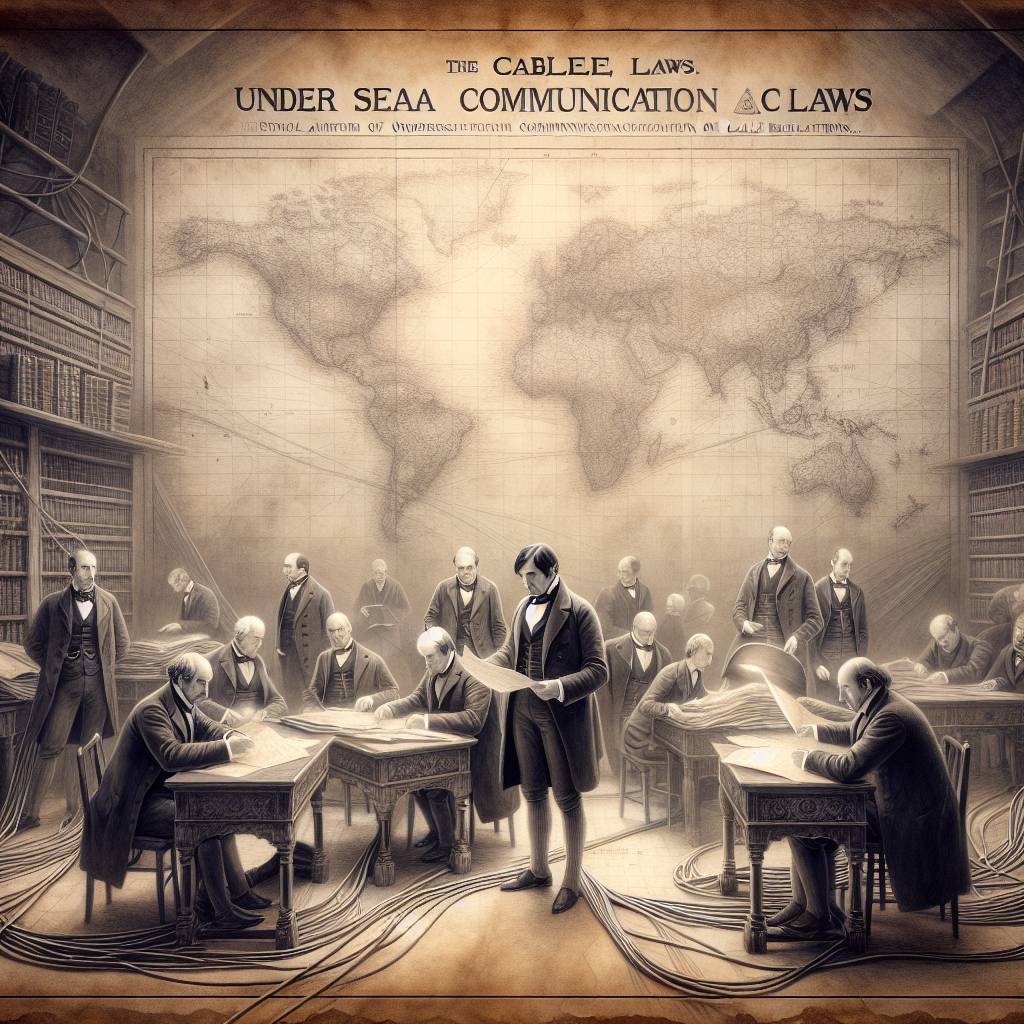UK’s 1885 Cable Laws: A Titanic Problem for Modern Cyber Threats!
Cyberattacks and undersea cable sabotage are blurring the line between war and peace, exposing gaps in UK law, says a government minister. With current laws as outdated as a Victorian penny-farthing, the UK struggles to address these modern threats effectively. It’s like trying to stop a cyber ninja with a feather duster!

Hot Take:
Ah, the good old days when the mere threat of a £1,000 fine was enough to scare off undersea cable saboteurs! But alas, the world has changed since 1885. Now, it’s a high-stakes game of underwater Whac-A-Mole with cybercriminals and shadowy state actors poking holes in our digital lifelines. It’s time for the UK to upgrade its laws from the days of horse-drawn carriages to the age of cyber warfare. After all, no one wants to be caught with their cables down.
Key Points:
- The UK government acknowledges that outdated laws, like the Submarine Telegraph Act 1885, are ill-equipped to handle modern cyber and subsea threats.
- The Strategic Defence Review proposes a new bill to address state-sponsored cybercrime and undersea cable attacks.
- Gray zone threats, which blur the line between peace and conflict, pose unique challenges for legislation and defense readiness.
- Current fines for cable sabotage are laughably low, prompting discussions on more effective deterrents.
- Collaborative efforts between the Department for Science, Innovation and Technology and the Ministry of Defence aim to draft more robust legislation.
Pipe Dreams of 1885
Remember the days when a quick slap on the wrist was enough to keep nefarious underwater mischief-makers at bay? Neither do we! But apparently, the UK’s current legal approach to undersea cable sabotage is straight out of the Victorian era. The Submarine Telegraph Act 1885, last updated to impose a whopping £1,000 fine, is hilariously out of sync with today’s high-stakes cyber shenanigans.
The New Frontier: Gray Zones
Welcome to the gray zone, where war and peace mingle like awkward party guests. State-sponsored cybercrime and undersea attacks are the life of this murky shindig, leaving nations scratching their heads over when a cyber tap on the shoulder escalates to an all-out brawl. UK lawmakers are grappling with this conundrum, trying to figure out when to call in the big guns and when to merely wag a finger.
Strategic Defence Review: A Legal Makeover
Like a digital Cinderella, the UK is set for a legal makeover. The Strategic Defence Review has proposed a shiny new bill to tackle state-sponsored cybercrime and underwater cable shenanigans. Aimed at bridging the gap between peace and conflict legislation, this bill is the legal equivalent of swapping a horse-drawn carriage for a Formula 1 car.
Fines: Not So Fine
Ah, £1,000 fines—perfect for 1885, but about as intimidating today as a stern look from a librarian. The UK government is pondering whether it’s time to upgrade these fines to a more respectable figure. After all, if you’re going to stop a state actor in their tracks, you’ll need something a bit more serious than pocket change.
Legislative Tag Team
In a rare display of unity, the Department for Science, Innovation and Technology and the Ministry of Defence are joining forces like a superhero duo. Their mission? To draft legislation that actually stands a chance against sophisticated cyber threats and underwater cable capers. Grab your popcorn; this is going to be more thrilling than a courtroom drama!
